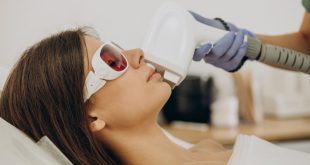Visiting a urologist for the first time can feel intimidating, but understanding what to expect can help ease your concerns. Urology is a branch of medicine that deals with conditions related to the urinary tract and male reproductive organs. Urologists diagnose and treat a variety of issues, from urinary tract infections (UTIs) and kidney stones to prostate problems and male infertility. If your primary care physician has referred you to a urologist, it’s important to remember that this is an essential step in managing your health and addressing any concerns you may have.
Your first urology visit is an opportunity to discuss your symptoms in detail, get a proper diagnosis, and develop a treatment plantailored to your needs. In some cases, you might visit a specialized group like Urology Partners of North Texas, which offers a wide range of expertise in urologic care. Being prepared for your visit and knowing what to expect will help you feel more comfortable and confident in the process.
Before the Appointment
Before your first urology visit, your doctor may request some preliminary tests or ask you to bring any previous medical records, including imaging scans or laboratory results, related to your symptoms. If you’re visiting a practice like Urology Partners of North Texas, they may also ask you to fill out a health history questionnaire before your appointment. This document will help the urologist better understand your medical background and current health concerns.
Make a list of any medications or supplements you’re currently taking, as well as any allergies you have. It’s also helpful to jot down any symptoms you’re experiencing, no matter how minor they seem, so you don’t forget to mention them during the consultation. These details can provide important clues for diagnosing your condition.
During the Consultation
Your first urology visit typically starts with a detailed discussion of your medical history and current symptoms. The urologist will ask you questions about your lifestyle, family history of urological conditions, and any other relevant health issues. They may inquire about your fluid intake, bathroom habits, or any discomfort or pain you’re experiencing. These questions are important because they help your doctor form a complete picture of your health.
Following the discussion, your urologist will likely perform a physical exam. For men, this may include a genital and prostate exam, which is a standard part of many urological evaluations. It’s natural to feel uncomfortable about these exams, but they are crucial for identifying potential issues like prostate enlargement or testicular abnormalities. For women, the exam might include a pelvic examination if there are concerns about the urinary tract or bladder function.
If you’re visiting a group like Urology Partners of North Texas, you can expect that your doctor will take the time to explain each step of the process, answer your questions, and ensure that you understand what is being done and why. Open communication is key, so don’t hesitate to ask for clarification if something is unclear.
visit: ptprofile.co.uk
Diagnostic Tests
Depending on your symptoms, the urologist may recommend diagnostic tests to get a more detailed look at your condition. Common urological tests include:
- Urinalysis: This is a simple test where your urine is analyzed to check for signs of infection, blood, or other abnormalities.
Blood tests: Blood tests can help assess kidney function, prostate health, and other important markers that provide insights into your urological health. - Ultrasound: This non-invasive imaging test uses sound waves to create pictures of the organs inside your body, such as the kidneys, bladder, or prostate. It helps the urologist see any structural issues or blockages.
- Cystoscopy: In this procedure, a small camera (cystoscope) is inserted into the bladder through the urethra. This allows the urologist to inspect the bladder lining and detect any abnormalities.
- PSA Test: For men, a Prostate-Specific Antigen (PSA) test might be ordered to check for elevated levels of PSA, which could be an indicator of prostate cancer or other prostate conditions.
Your doctor will discuss the results of any tests with you, often during a follow-up visit. Together, you’ll explore the best treatment options based on your diagnosis.
Treatment Options
Treatment plans vary depending on the specific condition you’re diagnosed with. Your urologist may recommend lifestyle changes, medication, or in some cases, surgery. Common treatments in urology include:
- Medications: For issues like overactive bladder, infections, or prostate enlargement, medications may be prescribed to manage symptoms.
- Lifestyle Changes: Adjustments to your diet, hydration habits, or exercise routine may be suggested to alleviate symptoms or prevent future issues.
- Minimally Invasive Procedures: Procedures like shockwave therapy for kidney stones or bladder botox injections for overactive bladder can be effective treatments for some patients.
- Surgery: In cases where non-invasive treatments aren’t sufficient, surgery might be necessary to address issues such as kidney stones, urinary blockages, or prostate cancer.
Again, clear communication with your urologist is important. Don’t hesitate to ask questions about the treatment plan or express any concerns you may have about recommended procedures.
Follow-Up Care
After your first visit, your urologist will likely schedule a follow-up appointment to monitor your progress or discuss test results. Follow-up care is important to ensure that your condition is improving and that the treatment plan is working effectively. Depending on your diagnosis, you may need regular urology visits to manage your condition over time.
If you’ve been diagnosed with a chronic condition like an enlarged prostate or kidney disease, you’ll need to work with your urologist to develop a long-term management plan. This might include lifestyle changes, medication, and periodic testing to monitor the condition.
Final Thoughts
Your first urology visit doesn’t have to be a stressful experience. By preparing in advance and knowing what to expect, you’ll be able to approach the appointment with confidence. Urologists are trained professionals who specialize in diagnosing and treating conditions of the urinary and reproductive systems. They are there to help you, and their goal is to provide the best possible care for your specific needs.
If you’re looking for comprehensive and compassionate urological care, consider scheduling a consultation with Urology Partners of North Texas. Their team of experienced urologists offers a wide range of services and treatments tailored to meet the needs of each patient. For more information or to book an appointment, visit www.upnt.com.
 Diverse Perspectives: Insights & Stories Exploring Ideas, Sharing Knowledge
Diverse Perspectives: Insights & Stories Exploring Ideas, Sharing Knowledge





